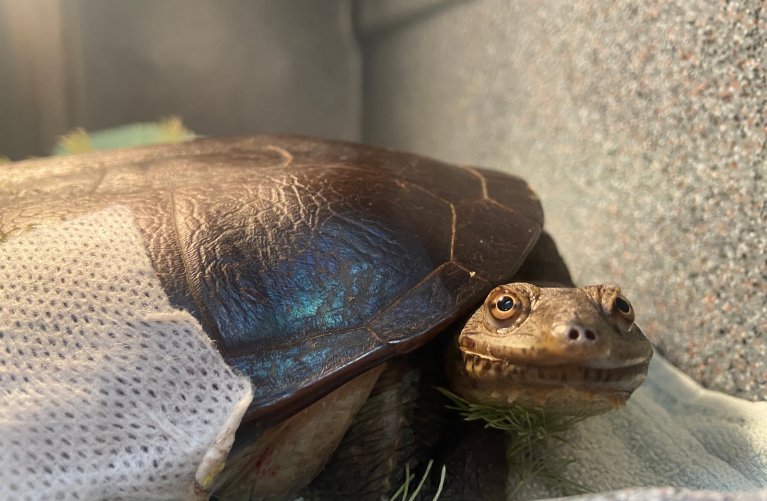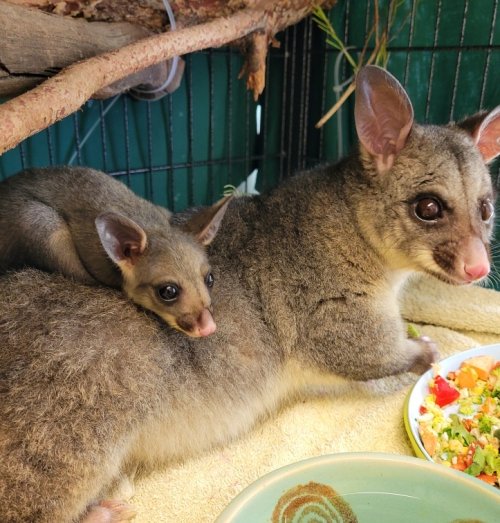Climate Change and Its Impact on Western Australian Wildlife
Understanding Climate Change
Climate change refers to lasting changes in the Earth’s climate, mainly driven by human activities like burning fossil fuels and deforestation. These activities release greenhouse gases, trapping heat in the atmosphere and causing global temperatures to rise.
The Impact on Western Australian Wildlife
Climate change significantly affects Western Australian wildlife, influencing ecosystems and species in various ways.
Habitat Changes
- Coral Reefs: Rising ocean temperatures cause coral bleaching, impacting the Ningaloo Reef’s marine life.
- Wetlands: Altered rainfall patterns dry out vital wetlands, affecting birds and amphibians.
- Forests: Higher temperatures and droughts lead to forest diebacks, impacting species like the western ringtail possum
Food Availability
- Insects: Declining insect populations due to climate change affect birds and bats.
- Plants: Changes in flowering times and seed production impact herbivores and dependent species.
Extreme Weather
- Bushfires: More frequent bushfires destroy habitats and displace wildlife.
- Heatwaves: Extended heat periods can cause direct mortality in species like flying foxes.
- Floods: Increased flooding can destroy nests and alter habitats.
Species at Risk
Iconic Western Australian species vulnerable to climate change include:
- Western Ringtail Possum: Threatened by habitat loss due to bushfires and urban development.
- Oblong Turtle: Drying wetlands increase vulnerability to predation and motor vehicle collisions.
- Carnaby’s Black-Cockatoo: Faces habitat loss and changes in food availability.
- Quokkas: Confined to limited areas, they face habitat loss and changing food resources.
Our Role and Your Role
WA Wildlife is dedicated to mitigating the impacts of climate change on wildlife through education and community outreach programs. These programs highlight how climate change affects wildlife and emphasise the responsibility of everyone to adopt sustainable lifestyles.
We support the City of Cockburn’s Climate Change Strategy 2020-2030, which outlines initiatives for reducing emissions and protecting natural habitats.

Sustainability and Its Benefits for Wildlife
Sustainability involves using resources in a way that meets current needs without compromising the ability of future generations to meet theirs. Adopting sustainable practices is essential for preserving the environment and ensuring the well-being of wildlife.
Benefits of Sustainability for Wildlife
Preserving Habitats
Sustainable practices help maintain and restore natural habitats:
- Forests: Protecting forests through sustainable logging and reforestation provides essential habitats for species like the western ringtail possum and Carnaby’s black-cockatoo.
- Wetlands: Conserving water resources and protecting wetlands ensure that birds, amphibians, and other wildlife have the necessary environments to thrive.
- Oceans and Reefs: Sustainable fishing practices and reducing pollution help protect marine ecosystems like the Ningaloo Reef, supporting diverse marine life.
Reducing Pollution
Minimising waste and pollution has direct benefits for wildlife:
- Air Quality: Reducing emissions improves air quality, which is crucial for all terrestrial wildlife.
- Water Quality: Preventing chemical runoff and plastic pollution protects aquatic ecosystems and the species that depend on them.
- Soil Health: Sustainable agricultural practices maintain soil health, supporting diverse plant and animal life.
Mitigating Climate Change
Reducing greenhouse gas emissions through sustainable practices helps combat climate change, which poses significant threats to wildlife:
- Temperature Regulation: Limiting global temperature rise helps maintain suitable living conditions for various species.
- Weather Stabilisation: Sustainable practices contribute to more stable weather patterns, reducing the frequency and severity of extreme weather events that disrupt wildlife habitats.
How You Can Help
Everyone can contribute to sustainability and help protect wildlife by adopting eco-friendly practices in daily life.
Reduce, Reuse, Recycle
- Reduce Waste: Minimise single-use plastics and reduce overall consumption.
- Reuse Items: Opt for reusable bags, containers, and other items to decrease waste.
- Recycle Properly: Follow local recycling guidelines to ensure materials are correctly processed and kept out of landfills.
Conserve Energy and Water
- Energy Efficiency: Use energy-efficient appliances, switch to LED bulbs, and consider renewable energy sources like solar panels.
- Water Conservation: Fix leaks, use water-saving fixtures, and practice mindful water usage to protect aquatic ecosystems.
Support Sustainable Products and Practices
- Sustainable Shopping: Choose products made from sustainable materials and support companies with eco-friendly practices.
- Local and Organic: Buy local and organic produce to reduce the carbon footprint and support sustainable agriculture.
- Eco-friendly Transport: Use public transport, carpool, bike, or walk to reduce carbon emissions.
Get Involved
- Community Initiatives: Participate in or support local conservation projects and clean-up events.
- Advocacy: Advocate for policies that promote sustainability and protect natural habitats.
- Education: Stay informed and educate others about the importance of sustainability and its impact on wildlife.
We support the City of Cockburn’s Sustainability Strategy 2017-2022, which outlines initiatives for reducing emissions and protecting natural habitats.



